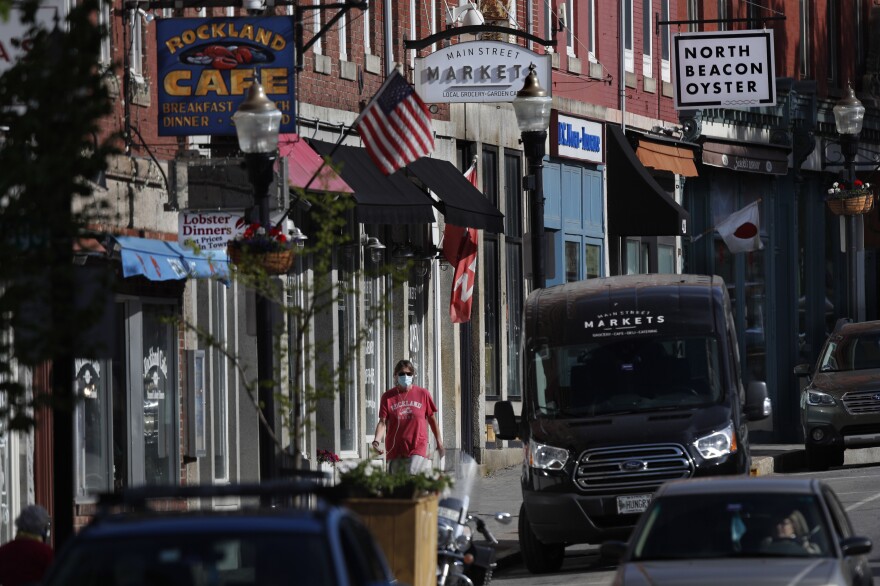On Monday, Maine Gov. Janet Mills announced new rules for tourists coming to Maine amid the COVID-19 pandemic. Instead of abiding by a 14-day quarantine, visitors seeking lodging will need to certify that they've had at least one negative COVID-19 test - with some exceptions.
Maine Public's Morning Edition host Irwin Gratz spoke with American University's Health Law and Policy Program Director Lindsay Wiley, who evaluated the new requirements.
Wiley: So there is still some risk in this plan, even if there's perfect compliance with it. You know, compliance is really a concern with any kind of public health intervention. The travel quarantine for 14 days also depended on a lot of people telling the truth about what they were doing, and complying because they knew that they should do the right thing to protect other people in the community.
On the second question about the effectiveness of requiring a test within 72 hours - You know, there is still a concern, and it's a concern that the governor's office and the state health department raised when they defended the 14-day quarantine in court. And that concern is that if people pick up the infection while they're enroute, because of the incubation period - even if every traveler into Maine has been tested or will quarantine when they arrive - there's some risk that that may miss some cases. What you're trying to protect in Maine is not that you are completely free from the virus but that you have low levels of it that are manageable within your hospital capacity. You know, my hope would be that the people of Maine and the businesses of Maine will understand that this is a fluid situation, and that if the hospitals do start to face a situation where they can't cope with cases, that those orders may change, and the restrictions may become more strict.
Gratz: There is this idea that these requirements will not be in place for folks from New Hampshire or Vermont. And I guess I'm not 100% clear why that would be. Is it simply because the virus seems to be less prevalent among the populations of those two states?
Yeah, I think we see, actually, quite a lot of areas like Maine that are dependent on tourism trying to identify other jurisdictions that are similarly affected by the virus as the jurisdiction that would receive the travelers. You know, the idea with a travel limit in a situation where the virus has been contained in one location is that you have to have very strict adherence to it. You know, if even one case gets through to an area where the virus is not in circulation, that has big consequences. But again, that's not the situation that Maine is in right now. The virus is there in the state. It's just been, fortunately, at reasonable, manageable levels, at least within hospital capacity.
All right. And then the last piece of this, of course, is the enhanced education. Based on what we've seen in the last few months, if you do flood an area with the messaging about social distancing and hand washing and all the other steps that one can take to be protective, does it seem to make a difference in how much people comply?
I think it's hard to know how much the messaging makes that difference, versus just knowing about the situation and knowing about how serious this virus has been for many people in this country. I tend to really value nudges that just help remind people in their everyday goings on about town that they should be maintaining social distance, even more than an education campaign like, you know, radio ads reminding people to maintain social distance. I actually really like the idea of things like using tape markings or signage on the floor in places where people are waiting in line, signage reminding them to wear masks. Even better would be providing masks as much as possible, particularly if there's a more effective kind of masks than some homemade masks might be. I think those measures probably play an even more important role than just sort of public information campaigns to follow public health guidelines.
In other words, make it easier for people to comply.
Exactly. What we like to say in public health is "make the healthy choice the easy choice."



